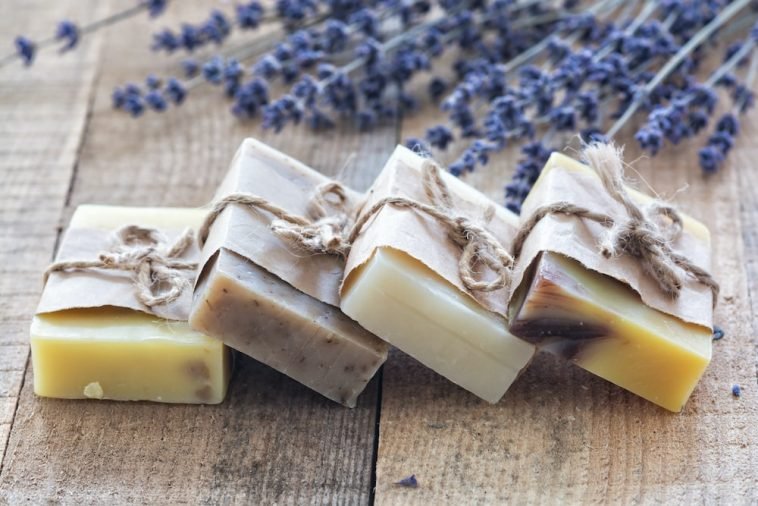Introduction.
Starting a soap-making business in Nigeria is not just an exciting venture, it’s a smart one too. With a population of over 200 million people, the demand for quality personal care products like soap is high and ever-growing.
Whether you want to make your soaps to sell locally or tap into the global market, this is a business with a lot of potential.
Soap-making might sound simple, but it’s more than just mixing oils and fragrances. It involves understanding your market, setting up a solid business plan, and knowing how to turn your creativity into a product that people want to buy.
In this post, I’ll walk you through the entire process, step by step, and show you how to get your soap-making business off the ground in Nigeria.
Why Start a Soap-Making Business?
You might wonder: Why soap-making? There are several reasons this is a fantastic business idea, especially in Nigeria.
Demand for Personal Care Products.
Nigerians love their personal care products. Soap is a daily necessity, whether it’s for washing, bathing, or even as a skincare treatment. The demand for soaps, especially organic or locally made ones, is increasing. People are now more conscious about what they put on their skin, making homemade, natural soaps highly sought after.
Low Startup Costs.
One of the reasons soap-making is a great business idea is that you don’t need a huge investment to get started. The raw materials, like oils, lye, fragrances, and essential oils, are affordable. Plus, if you start small, you can scale up your production as you gain customers and revenue.
Creative Freedom.
Soap-making is an art. You get to create unique designs, colors, and scents. If you’re passionate about skincare or have a flair for creativity, this is a business where you can truly express yourself. And the best part? You can tailor your soaps for different skin types and concerns, such as sensitive skin, acne, or dry skin, which can set you apart in the market.
Sustainability.
There’s a growing trend toward sustainability. Many customers are looking for eco-friendly and natural alternatives to commercial soaps. If you’re able to create handmade soaps using natural ingredients and sustainable practices, you’ll appeal to a large market of environmentally-conscious consumers.
Opportunity for Export.
Nigeria is known for its natural resources, and handmade, organic soaps made from local ingredients have great potential in international markets. With the right branding and packaging, your soaps could be in high demand worldwide.
How Do I Start a Soap-Making Business in Nigeria?
Now that you understand why this business is so promising, let’s dive into the practical steps on how to get started.
1. Learn the Craft of Soap-Making
Before you dive into production, it’s important to learn how to make soap properly. There are different methods, but the most common ones are:
- Cold Process: This method involves mixing oils with lye to create soap. It requires patience, as the soap needs time to cure, but it’s a popular technique for making natural soaps.
- Melt and Pour: This is the simplest method and involves melting pre-made soap bases and adding your own ingredients, like essential oils or colors.
- Hot Process: Similar to cold process, but faster. It’s a quicker method that involves cooking the soap to speed up the saponification process.
You can find courses or tutorials online or even attend local workshops to learn. The key here is to understand the different techniques and find one that suits your goals and resources.
2. Decide on Your Niche
Soap is a broad market, and to stand out, you need a clear niche. Are you going to focus on organic soaps?
Do you want to cater to people with sensitive skin? Maybe you’re interested in luxury soaps with exotic ingredients or soaps for specific skin concerns like acne.
Some popular soap types include:
- Organic and Natural Soaps
- Herbal Soaps
- Anti-Aging Soaps
- Exfoliating Soaps
- Luxury Soaps (like those with gold, honey, or shea butter)
Pick a niche that you are passionate about, and make sure there’s demand for it in your target market.
3. Get the Right Equipment and Materials
You don’t need an entire factory to start making soap. Here are some basic tools and materials you will need:
- Oils: Coconut oil, palm oil, olive oil, and shea butter are common choices.
- Lye (Sodium Hydroxide): This is essential for turning oils into soap.
- Water: Used to dilute the lye.
- Fragrance Oils or Essential Oils: For scent.
- Colorants: If you want your soap to have fun colors.
- Molds: You’ll need molds to shape the soap.
- Protective Gear: Always wear gloves and goggles when working with lye, as it can be dangerous.
You can source materials locally or buy them from online suppliers. Ensure the ingredients you choose are of high quality to make the best possible soap.
4. Create a Business Plan
Even if you’re starting small, a business plan is a must. It helps you stay organized and focused. Your plan should include:
- A clear description of your business: What type of soap are you making, and who are your target customers?
- Startup costs: Include the cost of materials, equipment, packaging, and other initial expenses.
- Marketing strategies: How will you attract customers? Will you sell online, at markets, or through retail shops?
- Financial projections: Estimate how much profit you expect to make and how long it will take to break even.
A business plan will help you manage your cash flow and ensure you’re making informed decisions.
5. Start Producing Your Soaps
Once everything is in place, it’s time to start making soap! Begin by experimenting with different recipes and techniques until you perfect your formula.
Remember, it’s okay if things don’t turn out perfect in the beginning. Soap-making takes practice, and as you learn, you’ll improve your skills.
6. Set Up Your Brand
Branding is crucial. Think about how you want your soap to be perceived by your customers. You need a name, logo, and packaging that reflects the quality and uniqueness of your product.
When choosing packaging, make sure it’s functional, attractive, and eco-friendly, as sustainability is becoming increasingly important to consumers.
Your soap brand should stand for something—whether it’s luxury, organic, or ethical. This will help build a loyal customer base.
7. Marketing and Sales
Now comes the fun part: selling your soap! Here are a few ways to get the word out:
- Social Media: Instagram, Facebook, and even TikTok are great platforms to showcase your products. Share pictures, videos, and behind-the-scenes content to connect with your audience.
- Word of Mouth: Tell friends and family about your business, and ask them to spread the word.
- Sell Online: Set up an online store or list your products on platforms like Jumia, Konga, or Etsy.
- Local Markets and Events: Consider selling at local markets or pop-up shops. Nigerians love to buy handmade products, and it’s a great way to get instant feedback.
8. Handle the Legal Stuff
In Nigeria, registering your business with the Corporate Affairs Commission (CAC) is important. You’ll also need to get the necessary permits and licenses to operate legally.
If you plan to sell locally, you may need to register with the National Agency for Food and Drug Administration and Control (NAFDAC) to ensure your products meet health and safety standards.
FAQs
Q1: How much does it cost to start a soap-making business in Nigeria?
The cost depends on your scale, but you can start small with as little as ₦50,000 to ₦100,000. As you expand, your costs will increase, but the startup costs remain relatively low compared to other businesses.
Q2: How can I make my soap business stand out?
Focus on quality and creativity. Offer something unique—whether it’s an eco-friendly approach, luxurious scents, or skincare benefits. Building a brand people trust is key to standing out.
Q3: Can I sell my soap internationally?
Yes, you can! Once you establish a good brand and market locally, you can explore international sales. Many people abroad are looking for natural, handmade soaps, especially if they are made from indigenous Nigerian ingredients like shea butter.
Conclusion
Starting a soap-making business in Nigeria is an exciting and rewarding journey. With the right skills, materials, and a solid business plan, you can turn your passion for soap-making into a profitable venture.
The market is ripe with opportunity, and the best part is, you don’t need to be an expert to start. So, why not leap and give it a try?
Are you ready to start your soap-making business?





GIPHY App Key not set. Please check settings